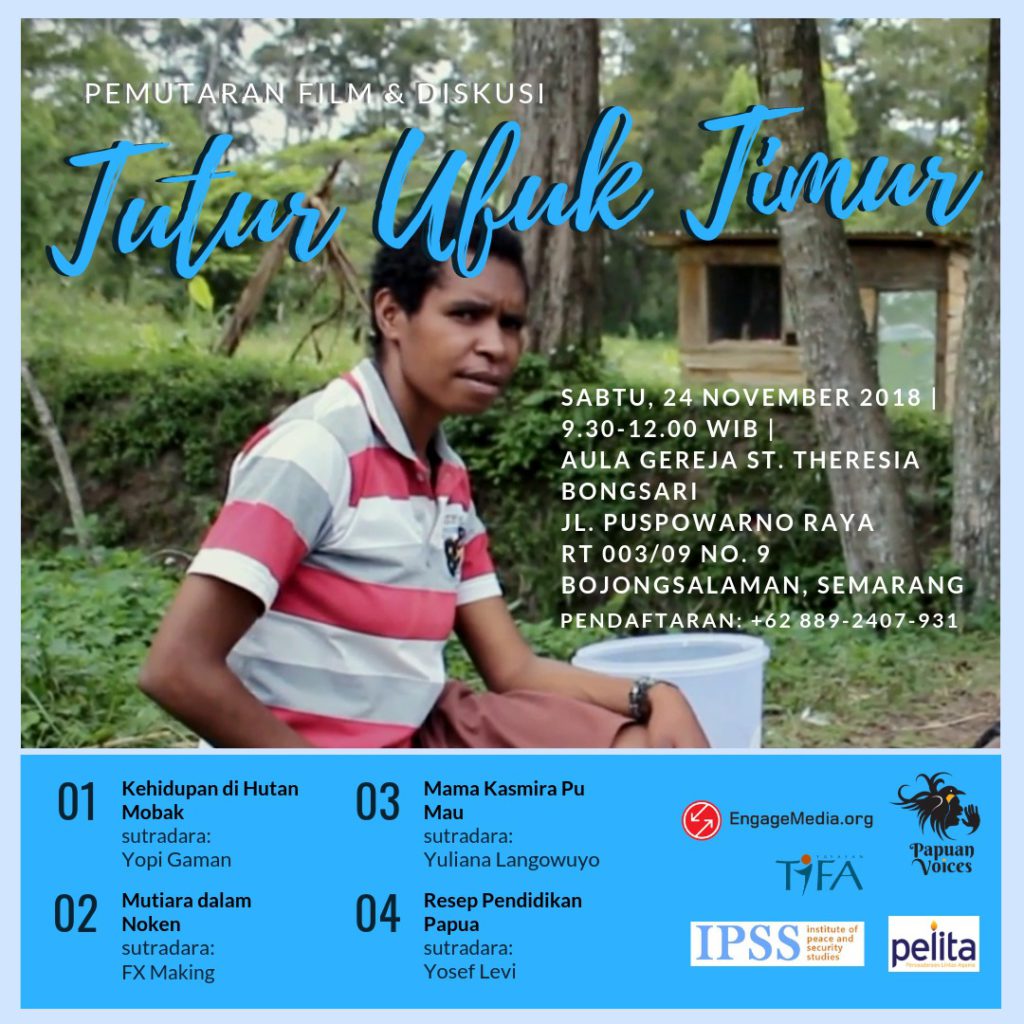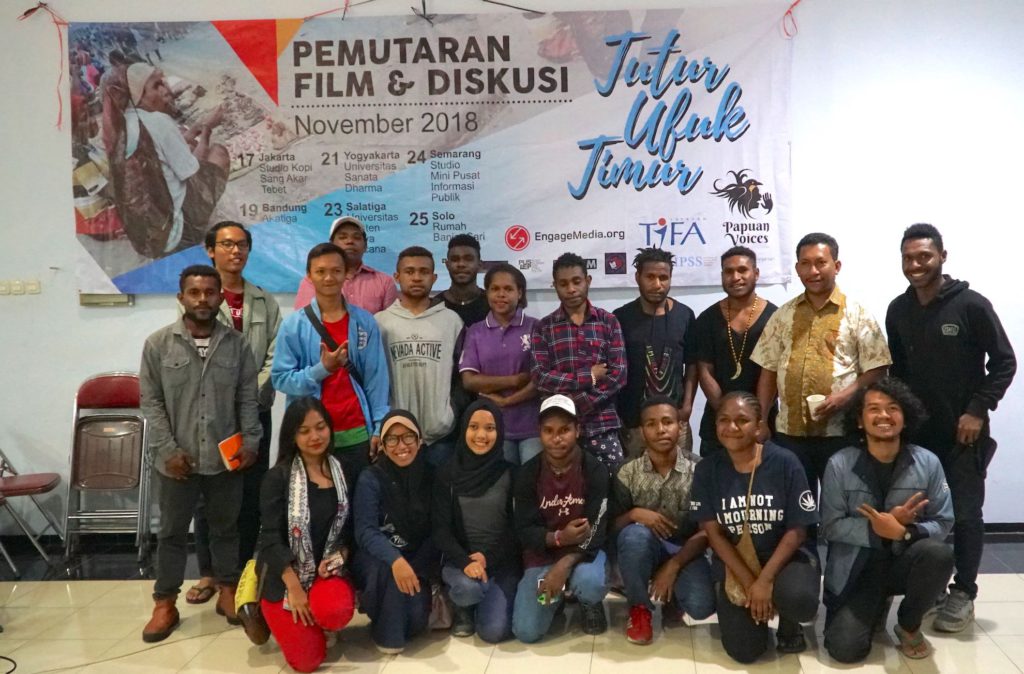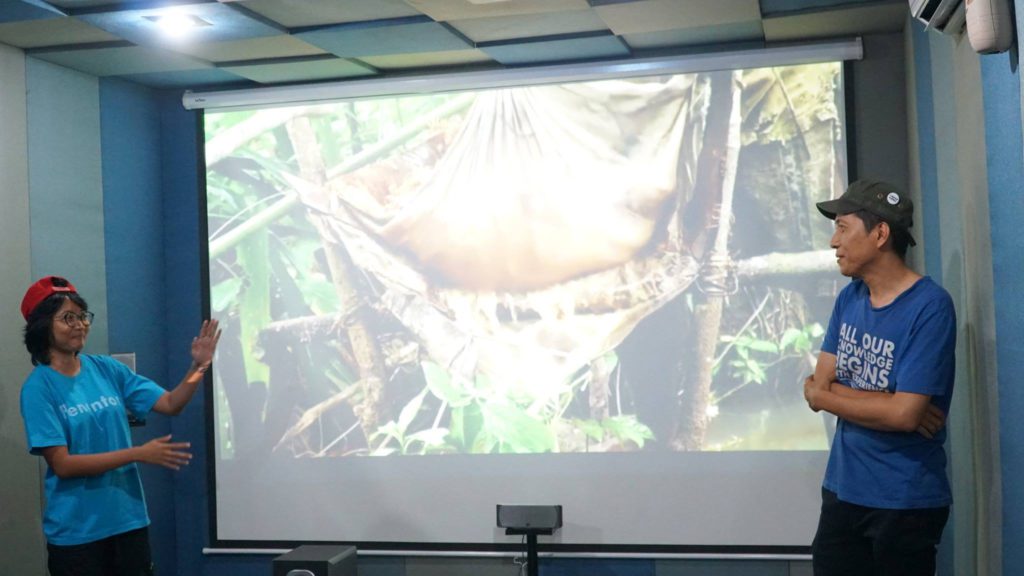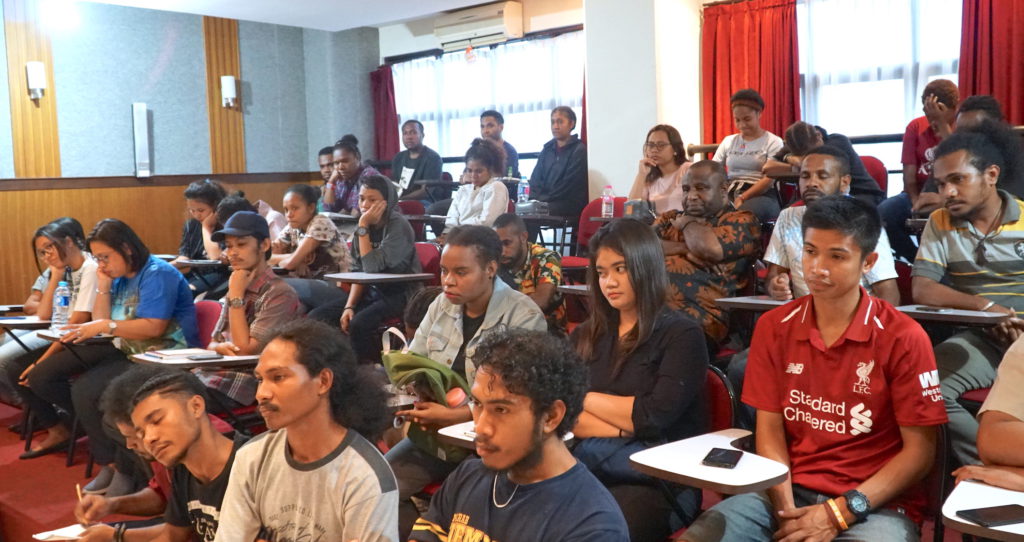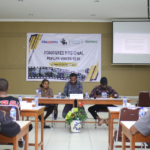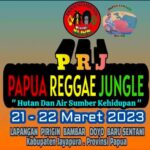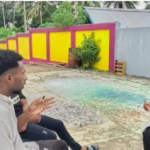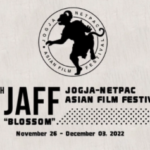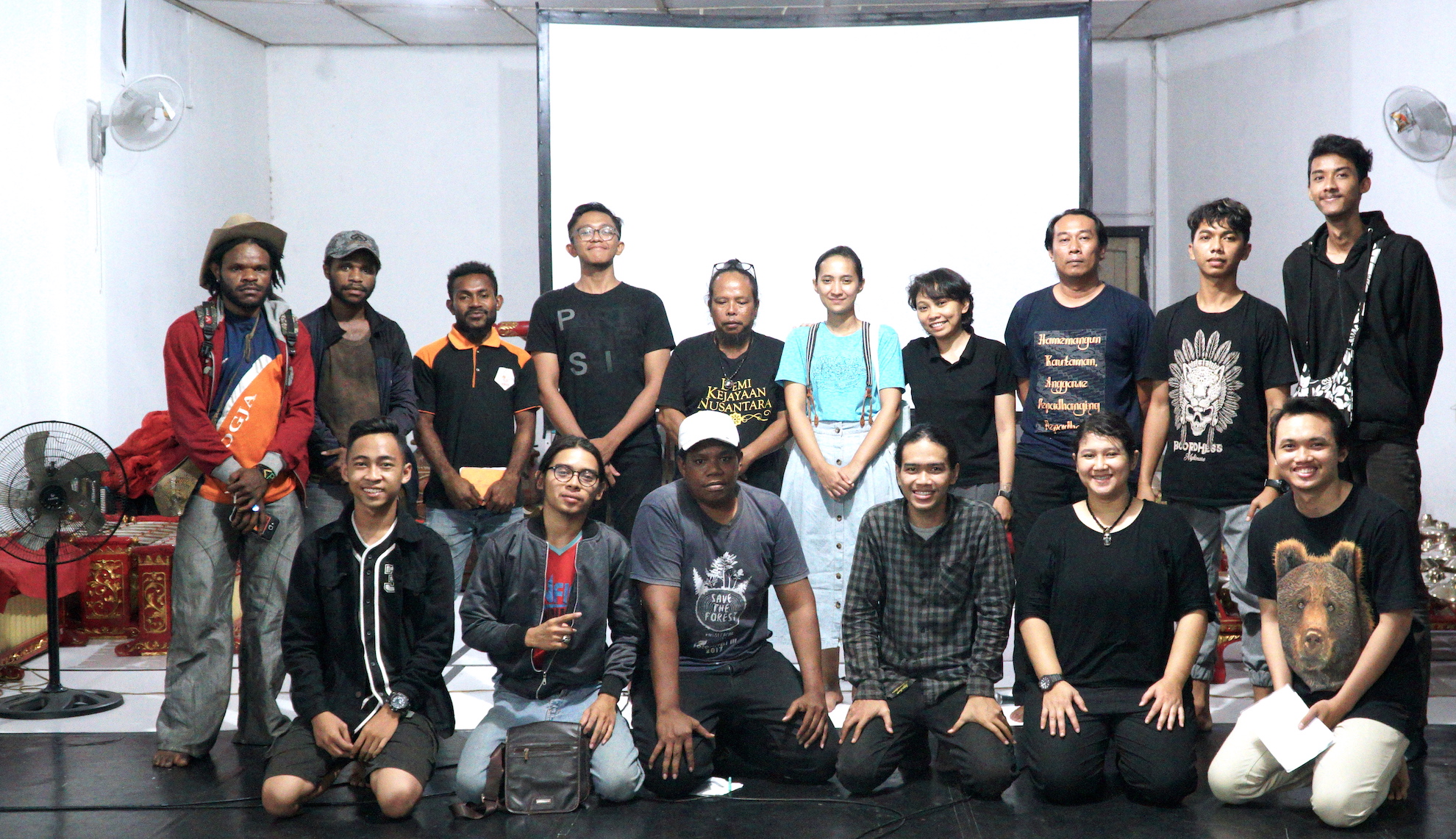
We called it “Tutur Ufuk Timur”, which means Tales From the East Horizon. It is a series of screenings and discussions of videos from Papua initiated by Papuan Voices (PV), EngageMedia and a number of local organisations. The roadshow traveled across six cities in Java from 17 to 26 November 2018, screening mainly films from previous iterations of the Festival Film Papua (FFP).
On 17 November, we began our journey from the west side of Java in Jakarta, Indonesia’s capital. From there, we traveled to an area which much higher altitude: Bandung; co-organising a screening on the 19th with AKATIGA. In the succeeding days, particularly on the 20th and 21st, we were able to have screenings and discussions at the Pusat Studi Sejarah dan Etika Politika (Center for Historical Studies and Political Ethics) at the Universitas Sanata Dharma in Central Java. Much to our delight, we were received with a good number of audience. We then arrived in Semarang on the 24th for an event at the Hall of Santa Theresia Church in Bongsari. Next, we moved to Solo for another event in Rumah Banjarsari on the 25th.
We culminated the tour on the 26th by organising an event in Teater LTC (Learning Training Center) at the Universitas Kristen Satya Wacana in Salatiga. Collectively, around 250 students, researchers, film-makers, clergymen, journalists and human rights and environmental activists.
For a long time, the story of Papua, particularly West Papuan provinces, has been disseminated to other parts of Indonesia through images and narratives produced by state-owned and private broadcasting and print media institutions. To add, West Papua has a few independent media outfits that produce featured films, documentaries and visual news reports, but they do not have enough reach. Through mobile film screenings and discussions we have organised across cities in Java, the aim of EngageMedia and PV was to change the perception of ordinary Indonesians towards the struggles of residents of Papua and West Papuan provinces. In addition, these sessions served as a platform in strengthening external communication capacity of the PV community in order to reach a wider audience.
As we go travel from one city to another, we witnessed the enthusiasm of young people in fighting for social justice and the environment, especially in Papua. Thus, we believe that these screenings and discussions provided the best platform for the PV community to capture feedback, criticism, and suggestions on their work directly from its audience.
Since its inception, films produced by the PV community have been used primarily as media advocacy tools in campaigning about environmental and social justice for West Papua. Previously, EngageMedia and PV have collaborated with other communities that also include educators and researchers. Now, due to its evident potential, EngageMedia and the PV community have been collaborating in organising training programs in Papua to teach filmmaking to local youths.
In 2017, the PV community successfully hosted the first independent film festival ever to be held in Papua: the Papuan Film Festival. It was considered as a benchmark for the film movement in the area. In fact, documentary films that were screened during the festival encouraged young Papuan film-makers to continue producing films that show their struggles as a Papuan and a human being. In addition, the storytelling tradition of their indigenous community helps those who were able to watch their documentaries in sharing its stories with wider and more remote communities. We believe that this also builds awareness among communities on various events, past and present, in a dialectical nature. Moreover, it contributes to the collective effort of discussing civil, political, economic, social and cultural rights of indigenous peoples; and helps initiate a movement towards environmental sustainability for future generations.
The second Papuan Film Festival was held in August this year in Jayapura, Papua. With the theme, “Indigenous Papuans Struggling in the Face of Modernisation”, the festival aimed to increase public awareness on critical issues faced by the indigenous Papuans; and emphasise their role in economic and infrastructural developments in the region.
During the “Tutur Ufuk Timur” roadshow, the majority of the audience who came to watch the films were young educated Indonesians who have daily interactions with colleagues from Papua and West Papua. Papuan students who live in the cities along the roadshow’s itinerary actively participated in the discussions to provide additional context for the films being screened. We are continuously trying to organise this project because we believe that what hinders regulatory and political changes in Papua and West Papua are not institutional issues; but the biased reporting of the mass media that involves discriminatory narratives, intervening and suspecting political expressions as a threat to our national security. This harmful framing continues to be augmented by intolerant groups acting on behalf of the greater Indonesian society.
We sincerely hope that initiatives such as “Tutur Ufuk Timur” will create more platforms for the Indonesian civil society wherein they are able to discuss and understand the real struggles of those in Papua and West Papua.
